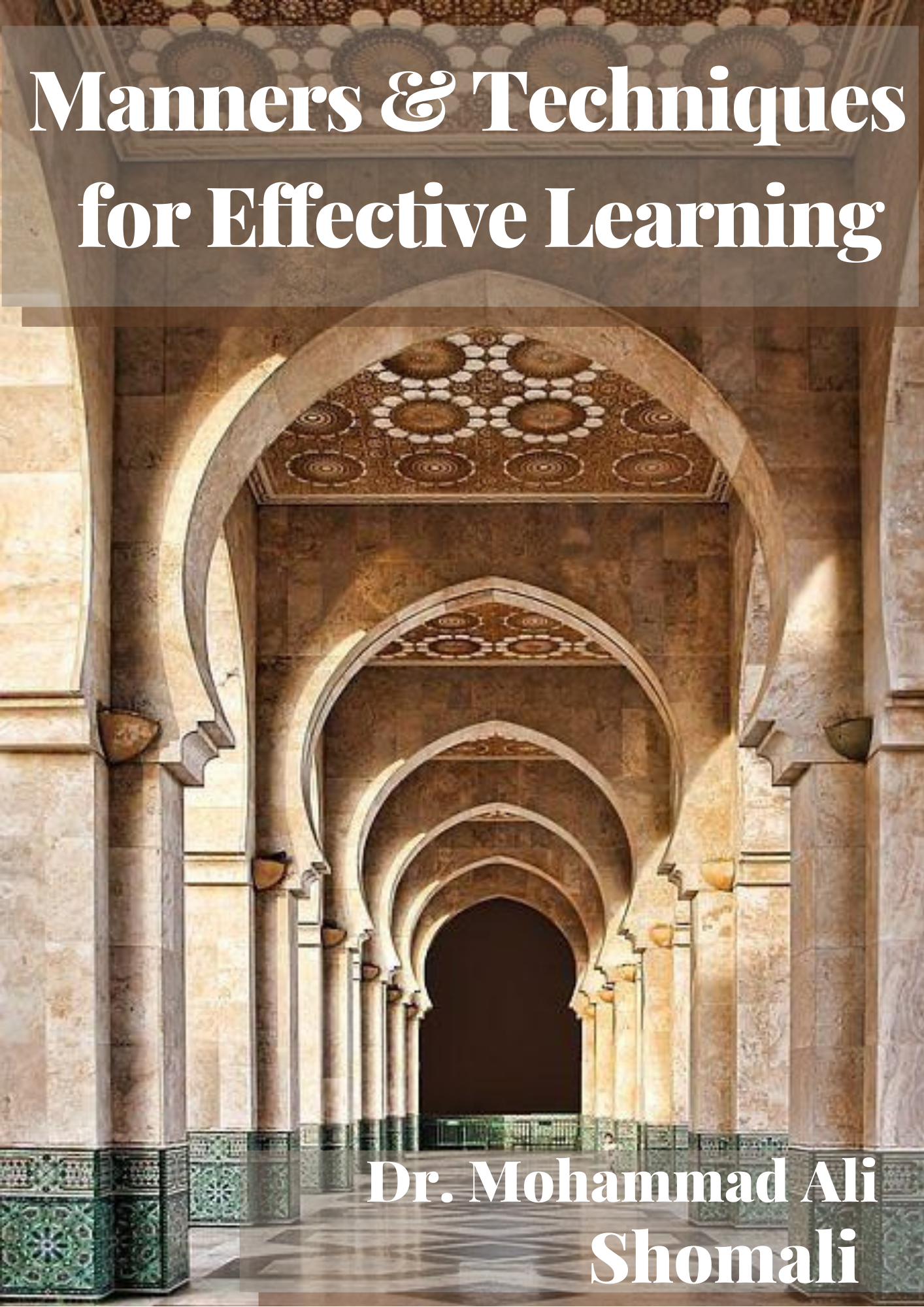Course Curriculum
| I - Islamic Tradition of Learning | |||
| 1. The Distinct Islamic Way of Pursuing Knowledge | 00:00:00 | ||
| 2. The Relationship between Teacher and Student | 00:00:00 | ||
| 3. Considerable Recognition of the Student Come from the Recognition of their Teacher | 00:00:00 | ||
| 4. Being Deeply Self-Motivated to Learn | 00:00:00 | ||
| 5. Keeping Pure Intentions at the Onset and Throughout | 00:00:00 | ||
| 6. Study in Islamic Seminaries is a Unique, Deeply Rooted and Invaluable Opportunity | 00:00:00 | ||
| 7. The Need for Fellow Students | 00:00:00 | ||
| 8. Mubahatha in the Teachings of the Ahlul Bayt (as) | 00:00:00 | ||
| 9. Emphasis on the Need for Circles of Knowledge | 00:00:00 | ||
| 10. Caution from Learning Alone & the Need for Attending In Person Live | 00:00:00 | ||
| 11. The Need for Review after Attending Class | 00:00:00 | ||
| II - The Practice of Mubahatha | |||
| 1. Selection of Mubahatha Partner(s) and their Number | 00:00:00 | ||
| 2. The Benefit of Presenting the Material to Others with Little or no Notes | 00:00:00 | ||
| 3. Timing of Mubahatha with Classes | 00:00:00 | ||
| 4. Attitude and Demeanor in Mubahatha | 00:00:00 | ||
| 5. Selection of the Presenter During Mubahatha | 00:00:00 | ||
| 6. Cultivating Openness to Criticism & Team Learning | 00:00:00 | ||
| 7. Outstanding Questions after Mubahatha | 00:00:00 | ||
| 8. Mubahatha Trains Us how to Handle Criticism | 00:00:00 | ||
| 9. The Entire Class Should be Reconstructed | 00:00:00 | ||
| 10. Open for Discussion but Avoid Mira’ | 00:00:00 | ||
| 11. Importance of Validating New Ideas | 00:00:00 | ||
| 12. Mubahatha According to Shaheed-e-Thani | 00:00:00 | ||
| III - Important Requirements of Rationality | |||
| 1. Significance Of Knowledge and Ways of its Acquisition for Rational Persons | 00:00:00 | ||
| 2. Listening – A Requirement of Rationality | 00:00:00 | ||
| 3. Reading – A Requirement of Rationality | 00:00:00 | ||
| 4. Asking for Feedback – A Requirement of Rationality | 00:00:00 | ||
| IV - Listening | |||
| 1. What to Listen To? | 00:00:00 | ||
| V - Reading | |||
| 1. What and How To Read? | 00:00:00 | ||
| 2. Read Anything that Can Help You | 00:00:00 | ||
| 3. Don’t Just Read Something Because It is Made Free, Available and Attractive | 00:00:00 | ||
| 4. Must Build a Reading List to be Read Sequentially | 00:00:00 | ||
| 5. Unless Necessary, Read to Learn a Subject Rather than Scattered Books | 00:00:00 | ||
| 6. Need for Carefully Prioritized Reading Lists Based on Individual’s Needs | 00:00:00 | ||
| 7. How Much to Read? | 00:00:00 | ||
| 8. Read One Hour Minimum | 00:00:00 | ||
| 9. The Need for Integrating Reading into Our Lifestyles | 00:00:00 | ||
| 10. How Much Should Hawza Students Read? | 00:00:00 | ||
| 11. How to Encourage Reading In Children, Family & Friends | 00:00:00 | ||
| 12. Family Reading Time | 00:00:00 | ||
| 13. Collective Reading | 00:00:00 | ||
| VI - Structured Learning & Studying | |||
| 1. Manners & Considerations Before Reading and Studying | 00:00:00 | ||
| 2. Time for Reading & Studying | 00:00:00 | ||
| 3. Good Times of the Day for Study | 00:00:00 | ||
| 4. Environment for Reading & Studying | 00:00:00 | ||
| 5. Spiritual Etiquettes for Reading & Studying | 00:00:00 | ||
| 6. Efficient Sleep for Efficient Reading & Studying | 00:00:00 | ||
| 7. Healthy Eating for Efficient Reading & Studying | 00:00:00 | ||
| 8. Reading & Studying Manners & Techniques | 00:00:00 | ||
| 9. How to Read? | 00:00:00 | ||
| 10. How to Take Notes? | 00:00:00 | ||
| 11. The Most Important Things to Learn in a Book | 00:00:00 | ||
| 12. Writing Summaries in Your Own Words | 00:00:00 | ||
| 13. How to Manage Reading and Studying Workloads for Maximum Efficiency? | 00:00:00 | ||
| 14. Importance Question-Driven Learning & Studying | 00:00:00 | ||
| VII - Our Manner of Learning & Studying and its Impact on Our Decision Making | |||
| 1. Instant Things are Not Always Good | 00:00:00 | ||
| 2. The Dangers of Fast, Short & Shallow Modes of Thinking | 00:00:00 | ||
| 3. Human Decision Making Versus Animal Decision Making | 00:00:00 | ||
| 4. Difference Between Longer Decision Making Versus More Sophisticated Decision Making | 00:00:00 | ||
| 5. The Need for Measured Risk | 00:00:00 | ||
| 6. The Need for Balanced Decision Making | 00:00:00 | ||
| 7. Our Studies are Our Responsibility – Take Control, Self-Monitor, Self-Evaluate | 00:00:00 | ||
| 8. Holistic Study is Necessary Before Specialization | 00:00:00 | ||
| 9. Maintaining Constant Study Throughout the Year | 00:00:00 | ||
44 STUDENTS ENROLLED


